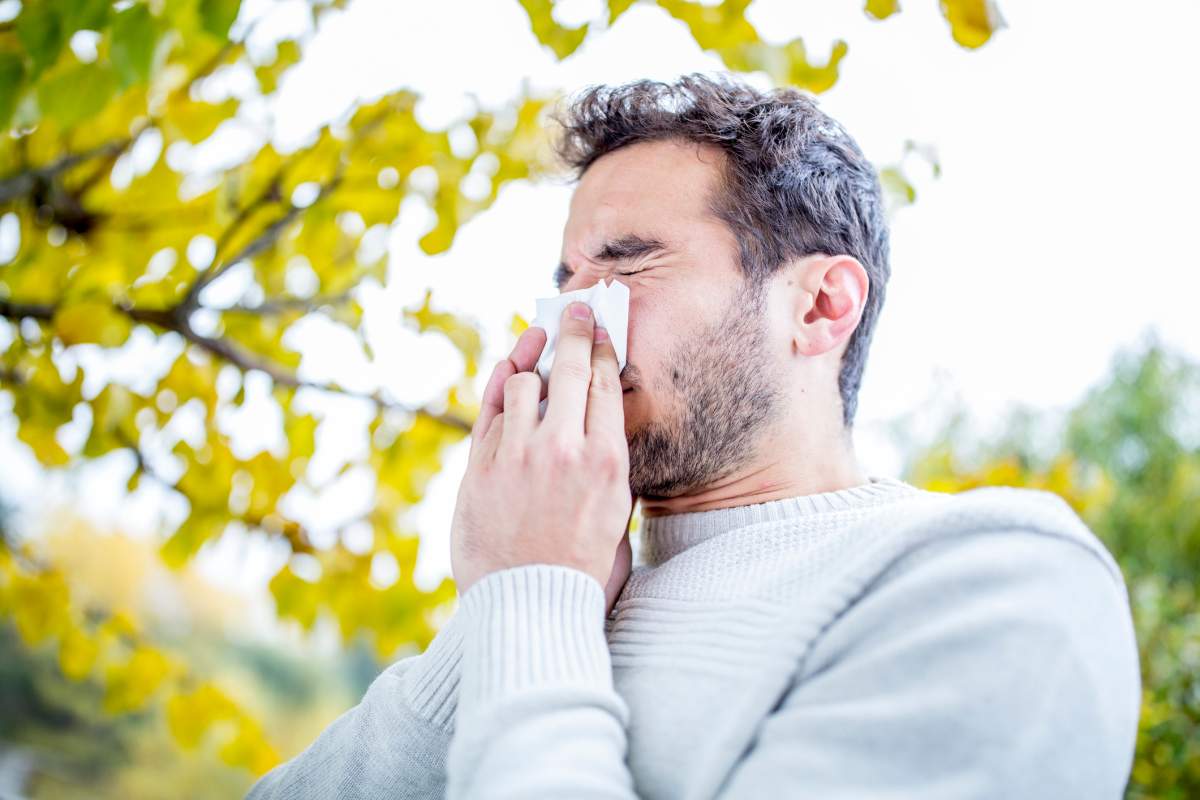Every year as spring begins to blossom, allergy sufferers ask themselves one very important question: will they be free to frolic among the flowers, or should they start hoarding tissue boxes?

Well, good news folks, because this year is shaping up to be a mild allergy season — and we have that cold and stubborn winter to thank for it.
READ MORE: What you can do to help fight seasonal allergies
According to the Aerobiology Research Laboratories, this year’s allergy season has been pushed back in much of the country due to the prolonged cold weather snaps many provinces have experienced.
“It is always hard to say on a long-term forecast, but what we’re seeing so far is that the season was delayed through much of the prairies toward the east because of the weather,” says Dawn Jurgens, operations and quality management director at Aerobiology.
“So we’re only just now starting to see the start of the season, which is later than typical. But as for what will happen for the rest of the season, it will all depend on how the weather does.”
But just because the season has been pushed back doesn’t mean we’ll get hit hard later, Jurgens says. In fact, the lab predicts that pollen generation will be less than what it was last year, making it a milder allergy season compared to last.

Get weekly health news
And if spring temperatures continue to be “normal,” allergy sufferers could get a much-needed reprieve.
While everyone can pretty much expect a milder season, there are some variances, depending on where you live in Canada. Jurgens breaks down what each region in the country may experience this year.
Atlantic Canada
According to Jurgens, pollen season in Atlantic Canada is just starting now. She says the region is experiencing a lot more overlap with trees that typically pollinate later coming around sooner, while the cycle of trees that come around earlier hasn’t finished yet.
So this can be a tossup for allergy sufferers – it just all depends on what they’re allergic to.
“Nothing is getting particularly high yet this year compared to what it usually is,” Jurgens says of the pollen levels. “So it’s kind of hard to say. But right now what is coming into season and is going to be getting high over the next little while is birch.”
Ontario and Quebec
Pollen season was also a little bit delayed, Jurgens says. However, with southern Ontario in particular, the season was interrupted.
READ MORE: New peanut allergy test is safer and more accurate, researchers say
With everywhere else in the region, though, the allergy season will be delayed, similar to what is being experienced in Atlantic Canada.
“Now that the weather has gone back to more normal temperatures, the rest of the season should be more normal,” she says.
Prairies
The prairies were very cold through the winter and through the spring so their season was significantly delayed,” Jurgens says. “So we’re in the same sort of vein as eastern Canada. We’re seeing very truncated seasons and the levels haven’t even gotten back up to normal levels.”
Because of this, Jurgens believes the prairies will probably have a slightly lower pollen season this year.
British Columbia
West coasters, however, will be the only part of Canada that will be experiencing a more “typical” pollen season, Jurgens says.
Because of this, that means the province has had high pollen levels since about February.











Comments
Want to discuss? Please read our Commenting Policy first.